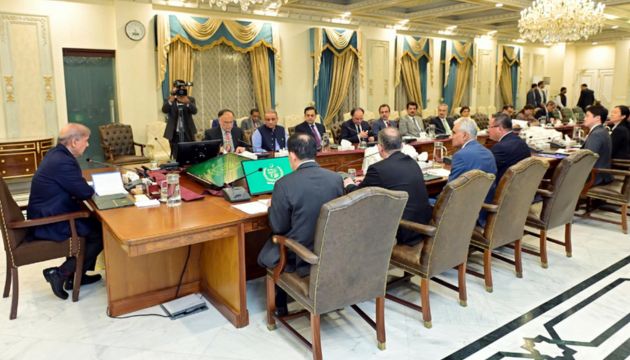ISLAMABAD: The government is considering bringing in experts from both the local market and abroad to staff all economic and technical ministries, replacing the current generalist cadre of federal secretaries and their immediate subordinates, this move aims to establish a more efficient and modern government structure capable of addressing the current governance challenges facing the country.
As per a media report, international lenders collaborating with the government on structural reforms have recommended adopting top global governance practices.
They suggest that bureaucrats should help the private sector, using research and data to make decisions, instead of causing problems through their control and power.
As part of the recommendations, the government has already taken the initial step by appointing a federal secretary from the private sector to the Ministry of Information Technology and Telecom.
The ministries of energy — including petroleum and power — as well as finance, commerce, water resources, climate change, and aviation are expected to follow this lead.
Also Read: Punjab government announces outsourcing of 6,000 schools
Reports indicated that the Special Investment Facilitation Council (SIFC) — a newly established body comprising civil and military leadership — also concluded that the current bureaucracy was not capable of advancing the country.
Several cases and proposals are presented to the government from various sources but often get stalled or proceed without quality input based on best market practices because the secretary is not always an expert in the field.
Most of the critical federal ministries, especially those related to the economy, have long been under the control of the Pakistan Administrative Service (PAS) — previously known as the District Management Group (DMG). For instance, dozens of PAS-DMG officers have led the vital Ministry of Finance for decades, with only one exception.
“The mindset needs to be changed from exercising power for permits and approvals to target-oriented performance indicators on a yearly basis,” said a cabinet member familiar with the discussions. The World Bank is the key lender supporting Pakistan’s structural reforms through loans, grants and technical assistance.
Their performance should be judged based on results and problems solved during the year according to the set targets, not on how many months or years they have served.
As per reports, the proposed changes would be similar to the undersecretary of state positions in the United States, where highly qualified professionals are appointed to top government roles to boost efficiency and effectiveness.
Also Read: DHA transfers 729 plots worth billions to CDA Islamabad after 17 Years
In doing so, the government may also transfer the powers of the principal accounting officers (PAOs) from the federal secretaries to ministers who should be answerable to the cabinet, the prime minister and parliament for their decisions.
Reports indicated that the recent appointment of a PAS officer as head of the Federal Board of Revenue (FBR), rather than a taxation expert, was also met with disapproval from the lenders. The tax authority had already faced a revenue shortfall of around Rs100 billion in August.
Media Report said the revenue collection, according to lenders, should be driven by data and research and had appreciated the hiring of a few consulting firms by the government, but wanted this to be institutionalised.
This approach needed to be applied to other fields as well, with decision-making based on targeted studies, similar to how other countries, including those in the Middle East, are modernizing their economies.
In these regions, all economic, commercial, and financial decisions are outsourced to consulting firms specializing in those areas rather than being influenced by political considerations.











